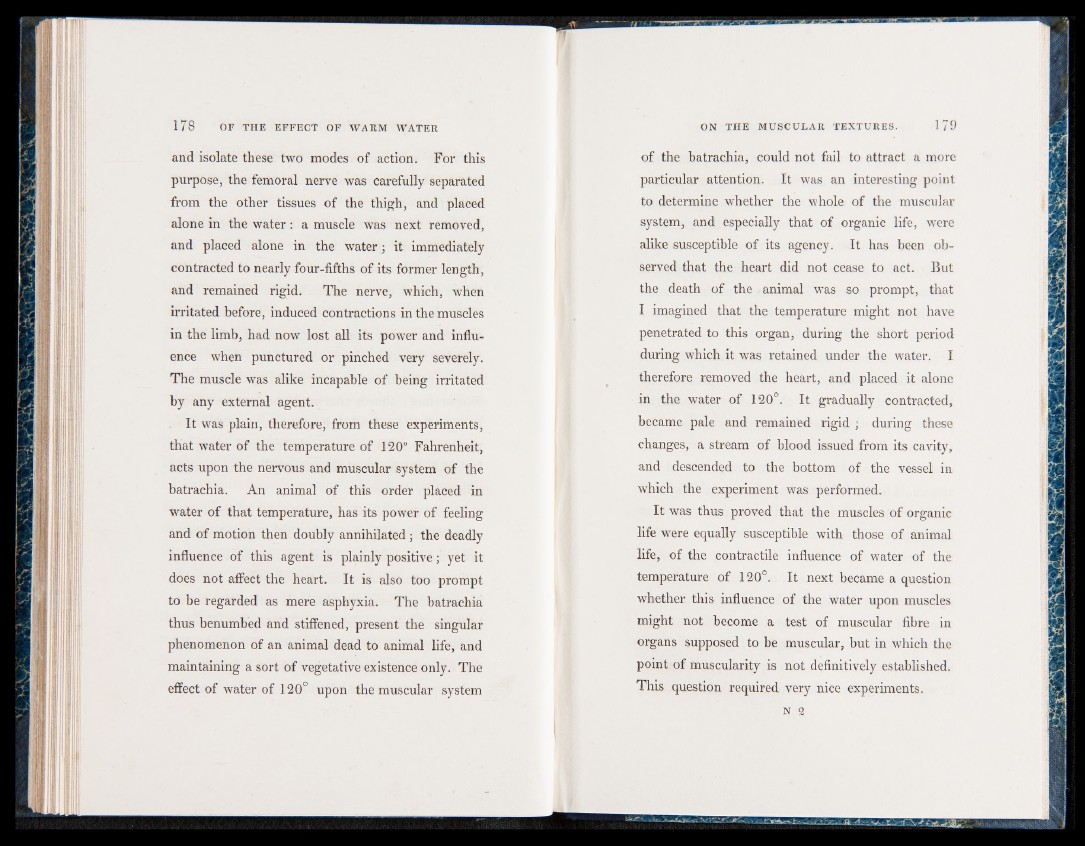
and isolate these two modes of action. For this
purpose, the femoral nerve was carefully separated
from the other tissues of the thigh, and placed
alone in the water: a muscle was next removed,
and placed alone in the water; it immediately
contracted to nearly four-fifths of its former length,
and remained rigid. The nerve, which, when
irritated before, induced contractions in the muscles
in the limb, had now lost all its power and influence
when punctured or pinched very severely.
The muscle was alike incapable of being irritated
by any external agent.
It was plain, therefore, from these experiments,
that water of the temperature of 120° Fahrenheit,
acts upon the nervous and muscular system of the
batrachia. An animal of this order placed in
water of that temperature, has its power of feeling
and of motion then doubly annihilated | the deadly
influence of this agent is plainly positive; yet it
does not affect the heart. It is also too prompt
to be regarded as mere asphyxia. The batrachia
thus benumbed and stiffened, present the singular
phenomenon of an animal dead to animal life, and
maintaining a sort of vegetative existence only. The
effect of water of 120° upon the muscular system
of the batrachia, could not fail to attract a more
particular attention. It was an interesting point
to determine whether the whole of the muscular
system, and especially that of organic life, were
alike susceptible of its agency. It has been observed
that the heart did not cease to act. But
the death of the animal was so prompt, that
I imagined that the temperature might not have
penetrated to this organ, during the short period
during which it was retained under the water. I
therefore removed the heart, and placed it alone
in the water of 120°. It gradually contracted,
became pale and remained rigid ; during these
changes, a stream of blood issued from its cavity,
and descended to the bottom of the vessel in
which the experiment was performed.
It was thus proved that the muscles of organic
life were equally susceptible with those of animal
life, of the contractile influence of water of the
temperature of 120°. It next became a question
whether this influence of the water upon muscles
might not become a test of muscular fibre in
organs supposed to be muscular, but in which the
point of muscularity is not definitively established.
This question required very nice experiments.
N 2